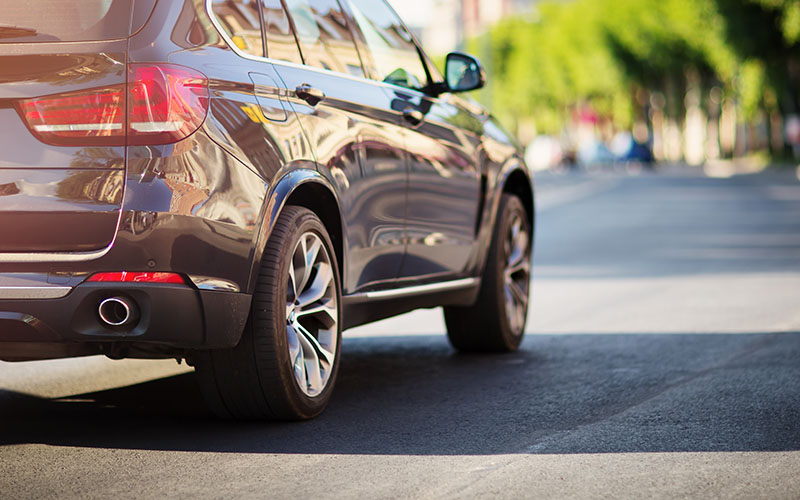East Los Angeles Lemon Law Attorney
Navigating Lemon Law in East Los Angeles
East Los Angeles residents rely heavily on their vehicles, with most households owning two or more cars and many commuters driving solo to work. A reliable vehicle is essential. However, dealing with car problems can be more than just an inconvenience; it's a significant disruption to daily life. No one should have to put up with the stress and frustration of a vehicle that doesn’t perform as promised. Fortunately, California’s Lemon Law offers relief.
Expertise in Lemon Law Cases
With over twenty years of experience resolving Lemon Law cases for consumers in East Los Angeles, extensive knowledge spans all brands and models of gas, electric, and hybrid vehicles, as well as motorcycles, trucks, and RVs.

The founding attorney spent her first twelve years representing major product manufacturers, including an automobile maker, before switching sides and focusing on consumer law. This unique experience provides an insider’s perspective on manufacturer operations, benefiting clients significantly.
Understanding the California Lemon Law
Since the advent of mass-produced cars, lemons have plagued consumers due to faulty designs, defective parts, or systemic manufacturing issues. In 1970, California became one of the first states to enact a Lemon Law, providing relief for consumers facing persistent vehicle problems. If a new or used vehicle in California is under a manufacturer warranty and has ongoing issues that a dealer has been unable to repair after multiple attempts, compensation may be available under the California Lemon Law. This law covers cars, trucks, vans, SUVs, RVs, motorcycles, some business-owned vehicles, and boats. It also applies to used vehicles that are certified pre-owned and/or still under the manufacturer’s warranty.
What exactly does the Lemon Law do?
If you leased or purchased a new or used vehicle in California that is under a warranty and has a problem(s) that a dealer has repeatedly failed to repair, you may qualify for compensation.
The California Lemon Law applies to cars, trucks, vans, SUVs, RVs, motorcycles, some business-owned vehicles, and boats. Both purchased or leased new vehicles. It also protects used vehicles that are certified pre-owned and/or still under a manufacturer’s warranty.
Warranties
The Lemon Law only applies if the vehicle is under a manufacturer’s warranty. There is always some confusion over this requirement. Simply, cars, trucks, and the powertrain portions of motorhomes are covered by the Lemon Law if:
- The vehicle is new, used, pre-owned or certified.
- You bought or leased it.
- When you bought or leased the vehicle it was covered by the manufacturer’s warranty (or portion of), or a manufacturer’s extended warranty.
- The vehicle might qualify out of warranty, if it had an ongoing problem that required it to be in the shop several times before the warranty expired.
- The manufacturer has had a reasonable number of opportunities to repair the defect.
- Or the vehicle has been in ‘the shop’ for more than thirty days, cumulative.
Motorcycles, the coach portion of a mobile home and towables (fifth-wheel trailers, toy haulers, travel trailers and pop-up campers) are covered as consumer goods. They enjoy the same protections as all consumer goods sold with a manufacturer’s warranty.
What Qualifies as a Lemon?
A vehicle is considered a lemon if it has a substantial defect that impairs its use, value, or safety, and if the issue persists despite multiple repair attempts. Specific examples of substantial defects include:
- Use: Issues that prevent driving the vehicle as intended.
- Value: Defects that decrease the vehicle's resale value.
- Safety: Defects that endanger the driver, passengers, or others.
Common defects include safety-related issues like stalling, brake pedal vibrations, transmission problems, overheating engines, and faulty airbags.

Vehicle Defects
Motor Vehicles today are better built, safer, and more integrated than ever. In 2020 8.8 million vehicles were manufactured in the United States alone. It's inevitable that something will go wrong somewhere along the way. Design flaws, factory mistakes, faulty computers, a supplier’s error.
The average 21st century gas powered car and truck has over 30,000 parts. From nuts and bolts to brake pads to computer motherboards and Wi-Fi routers. There are at least 2,000 moving parts.
The Gayle Law Group, PC has watched vehicles become ever more sophisticated and complex. We’ve kept pace with every change, and we’ve had lemon law experience with all of them.
Common Vehicle Defects
Modern vehicles are complex, with thousands of parts that can potentially fail. Some common defects leading to Lemon Law claims include:
- Airbag defects
- Air conditioning problems
- Transmission failures
- Antilock braking system (ABS) issues
- Engine fires
- Persistent odors
- Paint issues
- Computer and electrical problems
- Seat belt failures
- Power steering malfunctions
- Stalling and sudden acceleration
- Electric and hybrid vehicle issues like battery failures and electrical malfunctions
Electric and Hybrid Vehicle Defects
Where gas powered vehicles have over 2,000 moving parts, electric vehicles have less than 20. That, however, does not mean that electric and hybrid vehicles have fewer problems. In fact, because the systems in these vehicles are so integrated, even a ‘minor’ problem can have widespread and lasting implications.
- Automatic backup automation
- Battery failure
- Braking system
- Computer issues
- Electrical system malfunctions
- Failure to hold a charge
Motorcycles
Motorcycles are ‘consumer goods’ and have the same protections as all consumer goods sold with a manufacturer’s warranty.
Every rider knows that what might be considered a minor defect in a car could be a serious safety hazard in a bike. Protections are there for motorcycle owners. No one must put up with a lemon.
What Makes a Motorcycle a Lemon?
Your motorcycle may be considered a lemon if:
- The motorcycle you’re riding isn’t the bike as described in the warranty.
- There is a ‘substantial defect’ that is a safety issue. Or affects your use of the bike or its value.
- The motorcycle has gone to the repair shop multiple times and the problem persists.
- You have not been able to operate the bike for at least thirty days. Note that motorcycle repairs take substantially longer than car repairs. Not being able to use a bike for thirty days or more is not uncommon.
- You haven’t done anything to cause or contribute to the problem. Modifications, an accident, or neglecting regular maintenance void the warranty.
Common Motorcycle Defects
Common motorcycle defects that have led to Lemon Law claims:
- Loss of power
- Defective head gaskets
- Defective fuel pump
- Stalling
- Cutting out
- Will not start
- Oil leaks or sprays
- Lack of power
- Electrical system malfunctions
- Sway
- No crank conditions
Trucks
There are many myths and misconceptions about trucks and our Lemon Law. Because trucks have high safety ratings, are built to be rugged, are bought to be heavily used (sometimes for business use) many truck owners think the lemon law doesn’t apply to their vehicle.
It’s a misconception that leads truck owners and lessees to assume they have no recourse. Thankfully, the Lemon Law protects trucks that do not meet safety or other performance standards.
What Makes a Truck a Lemon?
If you bought or leased a truck with a warranty and for personal use, that truck falls under the California Lemon Law. If you bought or leased it for business, it is still covered provided:
- The gross weight of the truck is less than 10,000 pounds.
- The business has five or fewer vehicles registered in its name in California.
Like cars, trucks that fall under the Lemon Law are considered ‘lemons’ if they have a substantial defect that impairs their “use, value, or safety” and multiple attempts to fix it have failed.
RVs and Motorhomes
Recreational Vehicles and motorhomes represent a wide variety of motorized vehicles and ‘towables.’ Motorized RVs are Class A, B, and C vehicles. Some towables include fifth-wheel trailers, toy haulers, travel trailers and pop-up campers.
RVs, motorhomes, or trailers are major investments. Owners rely on them when they travel. Sometimes far off the beaten path.
A lot of things can go wrong. Families stranded in the wilderness, stuck in the desert, suddenly without water or plumbing, exposed to the elements, or, at the very least, forced to cancel vacations. It’s infuriating when your investment is in the repair shop more than it is on vacation.
RVs and motorhomes are covered under the California Lemon Law . . . but it’s a bit complicated. Towables are covered as consumer goods and have the same protections as motorcycles.
What Makes My RV/Motorhome/Towable a Lemon?
The chassis of a Class A, B, and C RVs fall under the Lemon Law. The coach is covered much like motorcycles – they are considered ‘consumer goods.’
The chassis – engine, drive train, everything that makes the RV mobile - is a ‘lemon’ if it has a substantial defect that impairs its “use, value, or safety” and multiple attempts to fix it have failed.
Few attempts suffice when the defect is a serious safety issue: anything that puts the driver and passengers in danger. The RV may also be a lemon if it has been in the shop for an excessive number of days – even if the repairs were for different issues.
In fact, in the first 18 months or 18,000 miles (whichever comes first), if the defect remains despite your best efforts or there’s been a series of unending problems, the RV is presumed to be a lemon. Then, it's up to the manufacturers to prove it's not.

The coach and towables – Simply, if you bought the RV or towable new, it’s under warranty, doesn’t perform like it is supposed to due to defects, you’ve tried to have it repaired and have been unsuccessful, the RV can qualify as a lemon.
Electrical and plumbing issues, tank leaks, hookups that consistently fail, slide-outs that won’t work, heating and air conditioning failures are all covered.
Steps to Take If You Think You Have a Lemon
If a vehicle is suspected to be a lemon, it is crucial to document everything meticulously. Keep records of all repair attempts, communications with the dealer or manufacturer, and any additional costs incurred due to the vehicle’s issues. Never leave service records in the vehicle; instead, store them in a safe place at home.
Remedies Available Under the California Lemon Law
If a vehicle qualifies as a lemon, the owner may be entitled to:
- A full refund, including registration fees, down payment, and loan/lease balance.
- A replacement vehicle.
- Compensation for towing, rental car costs, and other related expenses.
Importantly, the manufacturer is responsible for covering all legal fees and expenses associated with a Lemon Law claim, meaning the client pays nothing out of pocket for representation.

![]() CONTACT US
CONTACT US
Call Us
The Gayle Law Group has represented a great many East Los Angeles residents over the years. We’ve represented purchasers and lessees of cars, electric and hybrid vehicles, trucks, SUVs, motorcycles, RVs, and more throughout East Los Angeles.


